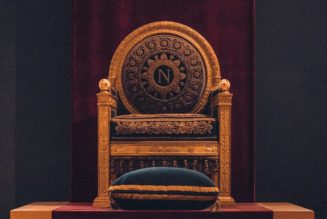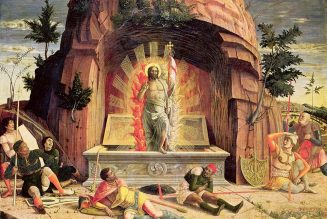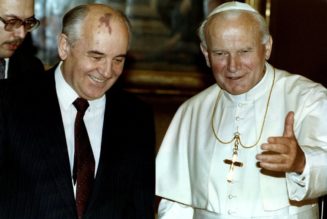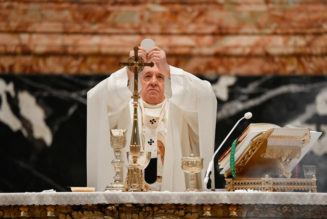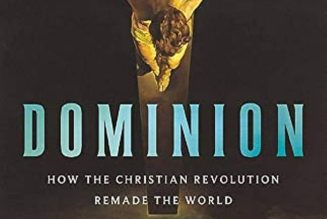
“The first thing to realize, if you wish to become a philosopher,” wrote one of the 20th century’s major philosophers, “is that most people go through life with a whole world of beliefs that have no sort of rational justification.” That was Bertrand Russell, in a book called “The Art of Philosophizing and Other Essays,” published in 1942, when he was 70.
He was one of those super-smart people who become celebrities treated as all-purpose experts. Einstein was another. Stephen Hawking was one in our day, and to a lesser extent are Richard Dawkins and Neil deGrasse Tyson, and in some circles Jordan Peterson.
He writes the quote above on the second page of the book. By page five, he’s described Christianity as “merely superstition or prejudice.” On page nine, he’s gotten to his real authority: Science with a capital “S,” for the same reason Christians capitalize “Scripture.” Science, he says, separates the modern world from the world before the 17th century — that is, from the world formed by Catholicism.
And, as he says on the next page, from the world of men like Plato and Aristotle. They created “a literary antiquarian philosophic outlook.” He implies they’re not really worth reading. “An hour with Galileo or Newton will give you more help toward a sound philosophy than a year with Plato and Aristotle.”
Not, by the way, the best choices for his point. Galileo was Catholic, and as far as we know, perfectly orthodox. And Isaac Newton, known now only for his mathematics and his work on gravity and motion, was a serious theologian. He saw science as explaining a world God created and kept in existence, a world that pointed to God in the ways it worked. He advocated an argument we would call “intelligent design.”
Russell’s discovery of science begins a string of rapturous sentences beginning, “It is science that.” Like: “It is science that has made the old creeds and the old superstitions impossible for intelligent men to accept. It is science that has made it laughable to suppose … man the supreme purpose of the creation.”
A super-smart man, at the top of the English academic and intellectual worlds, and saying confidently something bafflingly silly. Apologists have hit this easy target tens of thousands of times in the last century or so. Why bring it up again?
I bring it because the people at the intellectual heights of our culture believe that religious faith is personal and irrational and has absolutely no place in public life. The public truths, the beliefs on which they insist we build our public life, are secular and scientific.
Dawkins became famous and sold so many books by using science as a final authority against religion. DeGrasse Tyson became a celebrity saying the same kinds of things. People still invoke Russell and send out quotes like this one for the same reason.
Silly secularism keeps coming back like one of the monsters in a horror movie who just won’t die. Christians have to keep killing it, even though we’d rather do something else.
Myself, I remain as bewildered by this as I was as a secularish young man. How does science, which is only a method for finding out the things you can find out that way, tell us anything about the truth of beliefs about the nature of things? It can tell us about gravity and DNA, but not what or who might be behind them and what and who is the creature who thinks about them.
I had the advantage of growing up in a college town and knowing scientists. Some were confident and contemptuous atheists who claimed the authority of science for their disbelief. Even as a youth, I could see that they were incompetent philosophers. They didn’t ask the basic questions, like “How do you know this?”
We see a thing in the world, a fetus, say. We can measure him. We can trace his development. But who is he? What is he? Is he a he or an it? Science can’t tell us.
Chesterton knocked down this idea in “All Things Considered,” published in 1915. He’d read a book that claimed science had disproved major Christian doctrines. The kind of thing Russell said.
Everyone has always known what science tells us about life and death, he says. “A man who has lived and loved falls down dead and the worms eat him. That is materialism if you like. That is atheism if you like.” The obvious reality the scientist studies doesn’t touch the question of what we think of that man.
Our understanding of man doesn’t change because, through science, “we know the names of all the worms who eat him, or the names of all the parts of him that they eat.” That may help us live longer, but it won’t help us live well. As Chesterton puts it earlier in the book, “I want my private physician to tell me whether this or that food will kill me. It is for my private philosopher to tell me whether I ought to be killed.”
David Mills writes from Pennsylvania.


